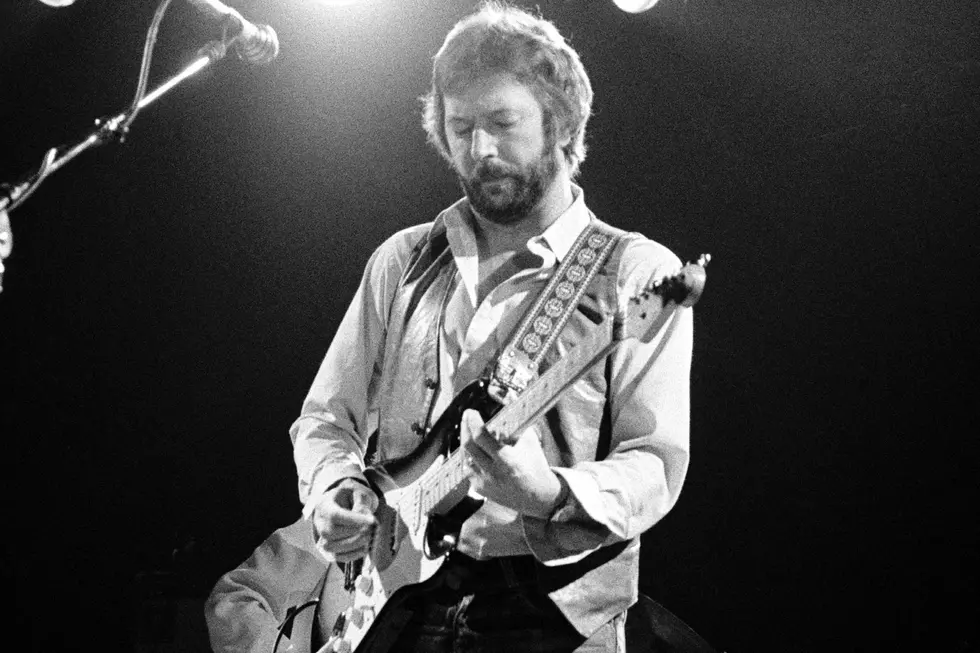
40 Years Ago: Eric Clapton Nearly Dies on Tour
Eric Clapton didn’t realize how bad things had become for him as his 1981 U.S. tour began. He jokingly owned up to being an alcoholic but had no idea he really was one. He thought the pain in his back was the result of an over-enthusiastic welcome from a drinking buddy. He knew he was spending a lot of money on drugs too — £1,000, the modern equivalent of over $11,000 a week — but thought his management would warn him if it really got out of control.
They didn’t. No one did. It seemed like Clapton was such a vehement character that no one dared tell him he was well into the red in terms of finance, health and possibly even creativity. His new album, Another Ticket, seemed better than some of his recent work — but the fact was, he didn’t care.
“I just thought, ‘Well, as long as I can play… I’ll just stay alive long enough to play,” he told Classic Rock many years later. But he nearly hadn’t — on March 13, 1981, just after he’d played his seventh show of a 57-date run, his body finally failed.
“I collapsed in agony as I came offstage in Madison, Wisconsin,” Clapton wrote in his 2007 autobiography. “We flew to St. Paul, Minnesota, where Roger [Forrester, tour manager] had me rushed to a hospital. I was diagnosed with five bleeding ulcers; one was the size of a small orange. The doctors told Roger, who wanted to fly me back to England, that I could die at any moment since one of the ulcers was pressing on my pancreas, and could burst imminently.”
In a statement to press, the health alert was accepted as a “major problem” but was put down to an overly rich diet. “But the great thing about it is he's very up,” Forrester said. “He's in good shape mentally.” If that was true, it was only because Clapton didn’t truly realize the trouble he was in. “I remember one of the first questions they asked me was, ‘How much are you drinking, because we think that might be your problem,’” he wrote. “To which I replied, ‘Don’t be ridiculous. I’m English. We all drink there, you know. It’s part of our lifestyle … [T]hey said, ‘Well, would you ever consider trying to cut back?’ And I replied, ‘Of course.’”
He thought it was remarkable that he didn’t actually miss drinking during a near six-week stay in hospital, but he suggested that the life-saving drugs — along with being allowed to smoke — saw him through. “I was quite happy to admit to being an alcoholic, but only in a jokey way," he wrote. "I wasn’t prepared to admit that it was a real problem. I was still at that stage where I would say, ‘I don’t have a problem. I never spill a drop.’”
The experience was a warning that many people never get — and unfortunately he failed to heed it. As fate would have it, he sustained cuts and bruises in a car crash just days after being released from hospital, almost as if another warning was needed. But by his own admission, after a few weeks of trying to keep alcohol to a minimum, he was back to his former ways. The following January he finally went to rehab to face his demons; but for a time, he believed he’d gotten away with his lifestyle. “I actually enjoyed feeling well again and being in good health,” he reflected. “I felt like I had a new lease on life because my physical condition was restored. My sanity, however, hadn’t been addressed at all.”
“I was taking people with me,” he admitted later, describing the way he treated some people close to him as “abuse.” He added: “That’s always the worst part about an addict or an alcoholic: people are dragged along, and sometimes they go down before the principal character.”
Ranking Every Eric Clapton Album
See Eric Clapton’s Guitar Hero Yearbook Picture


